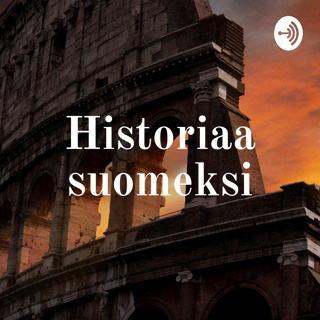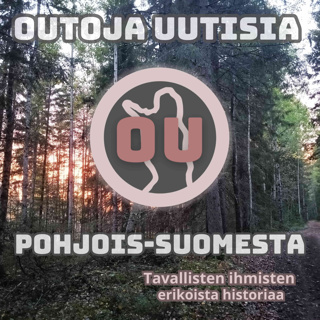
Laws of Nature
Melvyn Bragg and guests discuss the Laws of Nature. Since ancient times philosophers and physicists have tried to discover simple underlying principles that control the Universe: In the 6th Century BC Thales declared “Everything is water”, centuries later Aristotle claimed that all of creation was forged from four elements, Newton more successfully laid down the Law of Universal Gravitation and as we speak, contemporary scientists are struggling to complete the task of ‘String Theory’ - the quest to find a single over-arching equation that unites all of physics, and can perhaps explain the organisation of everything in existence.But are the Laws of Physics really ‘facts of life’? Is what is true in physics, true in all areas of existence? Is it even true in other areas of physics?With Mark Buchanan, physicist and author of Ubiquity; Professor Frank Close, theoretical physicist and author of Lucifer’s Legacy: The Meaning of Asymmetry; Nancy Cartwright, Professor of Philosophy, LSE.
19 Loka 200028min

The Romantics
Melvyn Bragg and guests discuss the ideals, exponents and legacy of Romanticism. In the space of a few years around the start of the nineteenth century the Romantic period gave us: Wordsworth, Coleridge, Blake, Burns, two Shelleys, Keats, De Quincey, Carlyle, Byron, Scott… the list goes on and on. And the poems: The Rhyme of the Ancient Mariner, Ode to a Nightingale, Tintern Abbey, Ozymandias, Don Juan… they make up some of the best known and most enjoyed works of literature in the English language. How do we explain what seems to be an extraordinary explosion of talent? Were the Romantics really a movement with their own philosphy and ideals? And when its adherents often died so tragically young, and its poems often seem so steeped in nostalgia and so wrapped in the transcendental, is Romanticism really good for you in a modern world? With Jonathan Bate, Professor of English, University of Liverpool; Rosemary Ashton, Professor of English, University College London; Nicholas Roe, Professor of English, University of St Andrews.
12 Loka 200042min

Hitler in History
Melvyn Bragg and guests discuss how history has struggled to explain the enormity of the crimes committed in Germany under Adolf Hitler: we have had theories of ‘totalitarianism’, and of ‘distorted modernity’, debates between ‘intentionalists’ and their opponents the ‘structuralists’. The great political philosopher Hannah Arendt said, “Under conditions of tyranny, it is far easier to act than to think”. But somehow none of these explanations has seemed quite enough to explain how a democratic country in the heart of modern Europe was mobilised to commit genocide, and to fight a bitter war to the end against the world’s most powerful nations.With Ian Kershaw, historian and biographer of Hitler; Niall Ferguson, fellow and tutor in Modern History at Jesus College Oxford; Mary Fulbrook, Professor of German History at University College London.
5 Loka 200042min

London
Melvyn Bragg and guests discuss the history of London. To T.S.Eliot it was the “Unreal City”, to Wordsworth “Earth has not anything to show more fair” but to Shelley, “Hell is a city much like London”. At the start of this twenty-first century the capital city covers an area of 625 square miles, is home to 7 million souls, and has an economy which at more than £115 billion is larger than that of Saudi Arabia, Ireland or Singapore. Is this modern metropolis still the place that the poets described? Can there be such a thing as a history of a city, which in each generation sucks in its communities from around the country and around the globe? In a city whose buildings have been razed, whose people have been decimated and whose borders have been dramatically redrawn, what is there that connects it to its own past?With Peter Ackroyd, author of London: The Biography; Claire Tomalin, author and biographer of Samuel Pepys; Iain Sinclair, poet, novelist and author of Liquid City and Lights Out for the Territory.
28 Syys 200041min

Imagination and Consciousness
Melvyn Bragg and guests discuss the question of consciousness, our sense of self, and how we are able to imagine things when they are not there, which are problems that have troubled the great minds of philosophy for thousands of years. Consciousness has been linked to language, has been married to the mind and divorced from the body; it has been denied to animals, opposed to the subconscious and declared irreducible, but still it defies definition, and the debate rages on as to why we evolved it at all. But perhaps science will finally provide the answer. With Professor Gerald Edelman, Director of the Neurosciences, Institute in California and winner of the Nobel Prize for Physiology or Medicine in 1972; Igor Aleksander is Professor of Neural Engineering Systems, Imperial College, London; Margaret Boden, Professor of Philosophy and Psychology, University of Sussex.
29 Kesä 200042min

Biography
Melvyn Bragg and guests discuss biography which sells more books now than ever before; last year people in this country spent 115 million pounds on 12 and a half million copies of biographies. And it’s not just in Britain that life stories are popular; the United States Library of Congress found recently that in the previous six months more people had read a biography than any other kind of book. But what drives this fascination in the lives of others; lives which have often long since passed. Why do the literary studies of often long dead characters make such popular books? And what is the role of the biographer who provides that account? Truthful chronicler, or inevitably biased re-inventor?With Richard Holmes, writer, biographer and the author of Sidetracks:Explorations of a Romantic Biographer; Nigel Hamilton, biographer, Director of the British Institute of Biography and Professor of Biography, De Montfort University, Leicester; Amanda Foreman, biographer of Georgiana, Duchess of Devonshire.
22 Kesä 200028min

Inspiration and Genius
Melvyn Bragg explores genius and inspiration. “When a true genius appears in the world, you may know him by this sign, that the dunces are all in confederacy against him”. So said Jonathon Swift, many people’s choice for a genius himself. But what does that word really mean? Are geniuses born or made? And what are the circumstances necessary for the great leaps of consciousness that inspire the development of science and art? Did Einstein’s brain arrive like that - markedly different from the expected formation - or did it become like that through thought? If genius does not exist, why are we so keen to invent it? Was Mozart programmed or pre-programmed and was Newton or anyone else solely responsible for inventing anything?With Arthur I. Miller, Professor of History and Philosophy of Science, Department of Science & Technology, University College London; Michael Howe, Professor of Psychology, Exeter University; Dr Juliet Mitchell, psychoanalyst and lecturer at Cambridge University.
15 Kesä 200028min

The Renaissance
Melvyn Bragg and guests discuss the Renaissance, which was first given its role as the birth place of modern man by the nineteenth century historian Jacob Burckhardt. At the start of his immensely influential Civilisation of the Renaissance in Italy, he wrote “In the Middle Ages both sides of human consciousness - that which was turned within as that which was turned without - lay dreaming or half awake beneath a common veil. The veil was woven of faith, illusion, childish prepossession, through which the world and history were seen clad in strange hues…In Italy this veil first melted into air” But is the Renaissance really a cultural miracle, and is it fair to think of medieval thought as being ‘obscured by a veil’? Should we even call the period around the fifteenth century the Renaissance when the very word implies that culture, for a thousand years, has been dead? What if our idea of the Renaissance is completely wrong? With Francis Ames-Lewis, Professor of History of Art, Birkbeck College; Peter Burke, Professor of Cultural History and Fellow of Emmanuel College, University of Cambridge; Dr Evelyn Welch, Reader in the History of Art, University of Sussex.
8 Kesä 200042min






















